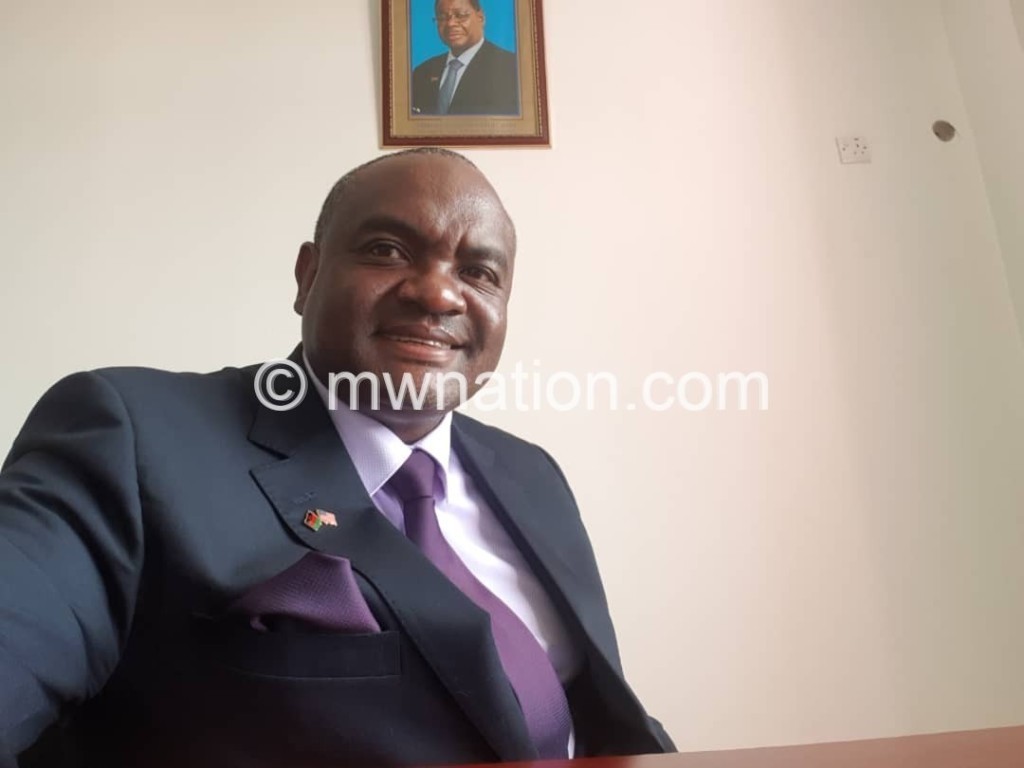‘Anti-competitive, collusive practices are still high’
In this interview, JAMES KAPHALE, who recently assumed the position of executive director of the Competition and Fair Trading Commission (CFTC) shares his vision about the competition and consumer protection regime in Malawi.
You have recently assumed the position of the Executive Director of the Commission. What are your priorities?

As you know, the commission was set up by government to promote market efficiency, economic growth and consumer welfare through regulation, monitoring, controlling and preventing acts or behaviours which are likely to adversely affect competition and fair trading in Malawi. While Malawi remains a liberalised economy, a number of studies have shown that markets are not operating efficiently. Anti-competitive practices, collusive business practices, cartels, exploitation of consumers and other forms of market abuse are prevalent.
That being the case, my number one priority is to provide leadership and ensure that the commission works to create a business friendly environment for private sector growth and development. I would like to see the industry develop, improve productivity and the quality of products through creativity and innovation.
As this is an enormous challenge, I will ensure that the commission works in close partnership with industry, sector regulators, civil society and the general public. I would also like the commission to develop sophisticated knowledge management infrastructure for document management, archival services, knowledge sharing and research data capturing. Such infrastructure would make it possible for businesses to file merger applications, complaints and applications for exemptions online as this is a technology era.
What is the relationship between competition and economic growth?
There is a strong link between competition and economic growth. Apart from bolstering productivity and competitiveness of the business sector, competition promotes dynamic markets and economic growth. Where there are many firms competing in the production and supply of goods or services, it creates internal pressure on the businesses to innovate, become more efficient and improve on product quality. This enhances productivity which in the long term results in economic growth and job creation.
Agriculture is the backbone of our economy? From a competition perspective, what is your assessment of the agricultural sector?
Like most markets, the agricultural sector is liberalised and there are many players. However, there are suspected anti-competitive practices in this industry such as alleged collusion amongst buyers of various agricultural produce, and transporters of produce. There are also reports of exclusive dealing arrangement and non-disclosures, particularly in the administration of farming contracts. The net result of these malpractices is that the agricultural sector is characterised by massive inefficiencies which leave farmers, as service consumers, vulnerable.
This is an in which that the commission is taking keen interest to ensure that farmers get sufficient protection.
One of the objects of the Competition and Fair Trading Act is to facilitate the expansion of the base of entrepreneurship? How is the commission achieving this goal?
Entrepreneurship is concerned with launching a new business in a given product or geographical market. It is about entry of new players into the markets. The commission facilitates the expansion of entrepreneurship base by among other things, eliminating barriers to entry, be it regulatory or structural. These barriers could take the form of cartels or other market restrictions such as allocation of outputs, geographical zones and customers. Where the market is monopolistic, the commission ensures that there is no abuse of market power by the dominant player.
How is the Commission working to secure the best possible conditions for the freedom of trade?
The commission encourages traders to venture into any kind of business in any industry, as long as it is legal. The commission also encourages all firms to ply their trade at any location within the country as the Act discourages market restrictions. The commission, in tandem with other trade instruments, also encourages import competition.
The commission recently issued a fine of K500 000 to a number of companies? Why did the Commission issue those fines?
The law empowers the commission to fine any businesses found to have infringed the Competition and Fair Trading Act and Consumer Protection Act. This is a punitive and deterrent measure. The minimum fine provided under the law is K500 000 or the financial gain generated by the offence.
How is the commission working with other stakeholders such as non-governmental organisations (NGOs)?
As I mentioned earlier, one of my priorities is to work in close partnership with key industry players, NGOs and other sector regulators. I am pleased to say that we are already working with the Consumer Association of Malawi (Cama). As everyone is aware, Cama has a long history of consumer rights advocacy in Malawi. As a law enforcement agency, the commission considers Cama as an important partner in executing our mandate. This year, for the first time in the history of consumer protection enforcement in Malawi, the sommission will work jointly with Cama to organise the commemoration of World Consumer Rights Day.
What is your message on World Consumer Rights Day?
This year, the commission will commemorate World Consumer Rights Day on 25 March 2020 with a series of activities under the theme “Protecting Consumers from Substandard Products.” The focus of the discussion will be on the proliferation of substandard products on the market.
What are the challenges that the commission is facing now?
The high prevalence of anti-competitive and collusive practices on the market makes it imperative for the commission to step up its market intelligence and promote efficiency in all markets. This requires sufficient financial and human resources to enhance its accessibility in all regions. At present, the commission receives direct financing from government, which is commendable. However, there is need for the commission to explore alternative revenue avenues to reduce the high dependence on government resources.





